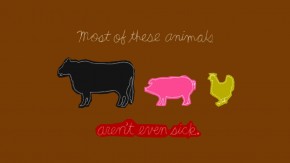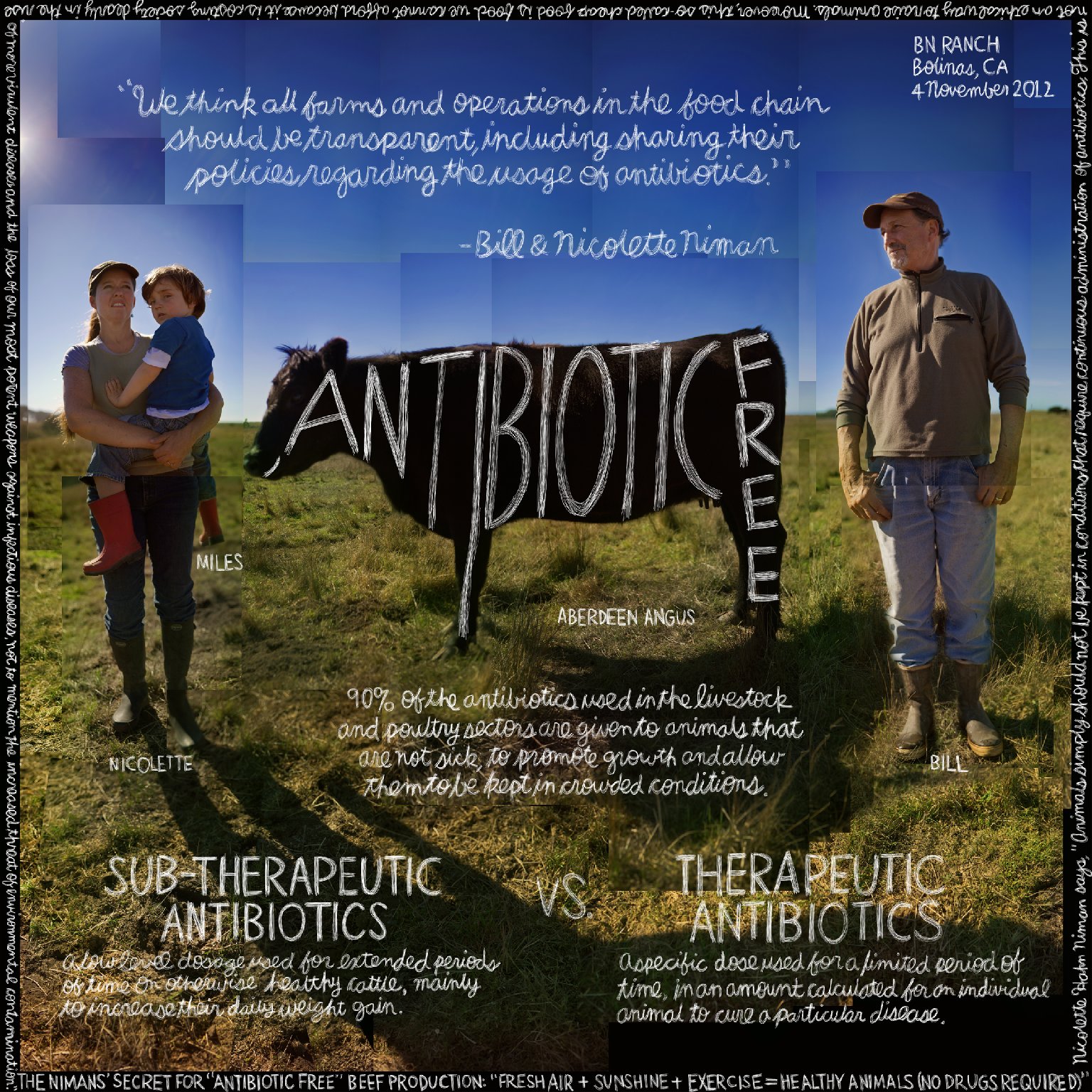
In the latest video from the Lexicon of Sustainability's Douglas Gayeton, "Antibiotic-Free," Bill and Nicolette Niman of BN Ranch share their thoughts on the growing movement in the U.S. to remove sub-therapeutic antibiotics from American beef. Excerpts from a conversation with attorney and livestock rancher Nicolette Hahn Niman with Gayeton follow below.
5 Quotes from Nicolette Hahn Niman of BN Ranch in Bolinas, CA (Excerpted from a conversation with Douglas Gayeton)
What sparked her initial interest in the use of antibiotics in animal husbandry: "My interest in this issue started when I was working as an environmental lawyer, because we became aware that the vast majority of antibiotics in the United States every year are actually used in animal agriculture. Even more troubling, they are actually used on animals that are not sick, [but] just to speed up their growth and to enable the crowded conditions for their housing. This is a huge environmental issue because it’s potentially on the food -- these antibiotics resistant bacteria -- as well as the antibiotic residue, and it’s also in the environment."

Problems with antiobiotic use: "The biggest problem with using antibiotics in animal farming is the potential for their overuse...When they are overused by continually feeding them in their daily feed, which is common practice today in the United States, is when populations of bacteria [on farms] evolve that are very resistant to these drugs. When humans come in contact with those bacteria, either by being on the farm or even by eating the food products from that farm, a person can contract an illness that cannot be treated with antibiotics. It’s really a huge human health issue and I think that really is the primary concern."
Antibiotics for treatment vs. accelerating growth: "The interesting thing is…there are these two totally different uses. The one is for treating an individual animal that is actually sick and treating them with the prescribed dose. That usage of antibiotics has not been shown to contribute to the rise of antibiotic-resistant bacteria. In contrast to that usage, [there's] the usage of sub-therapeutic antibiotics, where animals are continually being given this low dose.  This has been shown repeatedly in many studies to foster the rise of antibiotics-resistant bacteria. In my opinion, using antibiotics to treat an illness of an individual animal is entirely defensible and actually a good practice. Whereas, overusing antibiotics and continually feeding them to speed the animal’s growth is a totally unacceptable practice."
This has been shown repeatedly in many studies to foster the rise of antibiotics-resistant bacteria. In my opinion, using antibiotics to treat an illness of an individual animal is entirely defensible and actually a good practice. Whereas, overusing antibiotics and continually feeding them to speed the animal’s growth is a totally unacceptable practice."
